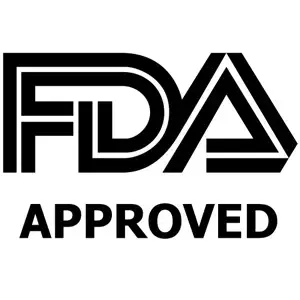- Home
- Medical news & Guidelines
- Anesthesiology
- Cardiology and CTVS
- Critical Care
- Dentistry
- Dermatology
- Diabetes and Endocrinology
- ENT
- Gastroenterology
- Medicine
- Nephrology
- Neurology
- Obstretics-Gynaecology
- Oncology
- Ophthalmology
- Orthopaedics
- Pediatrics-Neonatology
- Psychiatry
- Pulmonology
- Radiology
- Surgery
- Urology
- Laboratory Medicine
- Diet
- Nursing
- Paramedical
- Physiotherapy
- Health news
- Fact Check
- Bone Health Fact Check
- Brain Health Fact Check
- Cancer Related Fact Check
- Child Care Fact Check
- Dental and oral health fact check
- Diabetes and metabolic health fact check
- Diet and Nutrition Fact Check
- Eye and ENT Care Fact Check
- Fitness fact check
- Gut health fact check
- Heart health fact check
- Kidney health fact check
- Medical education fact check
- Men's health fact check
- Respiratory fact check
- Skin and hair care fact check
- Vaccine and Immunization fact check
- Women's health fact check
- AYUSH
- State News
- Andaman and Nicobar Islands
- Andhra Pradesh
- Arunachal Pradesh
- Assam
- Bihar
- Chandigarh
- Chattisgarh
- Dadra and Nagar Haveli
- Daman and Diu
- Delhi
- Goa
- Gujarat
- Haryana
- Himachal Pradesh
- Jammu & Kashmir
- Jharkhand
- Karnataka
- Kerala
- Ladakh
- Lakshadweep
- Madhya Pradesh
- Maharashtra
- Manipur
- Meghalaya
- Mizoram
- Nagaland
- Odisha
- Puducherry
- Punjab
- Rajasthan
- Sikkim
- Tamil Nadu
- Telangana
- Tripura
- Uttar Pradesh
- Uttrakhand
- West Bengal
- Medical Education
- Industry
FDA approves alirocumab for homozygous FH as addon therapy

The US food and drug administration (FDA) has expanded approval of Praluent (alirocumab) injection for adult patients with homozygous familial hypercholesterolemia (HoFH) as an add on therapy to other treatments for HoFH.
Praluent was originally approved by food and drug administration as early as 2015. It is also approved to reduce the risk of heart attack, stroke and unstable angina (a condition in which the heart does not receive enough blood flow and oxygen) requiring hospitalization in adults with cardiovascular disease. In addition, Praluent is approved to be used alone or in addition to diet or other therapies to treat primary hyperlipidemia (certain forms of high cholesterol).
The US food and drug administration (FDA) has granted approval of Praluent to Regeneron Pharmaceuticals, Inc.
Homozygous familial hypercholesterolemia (HoFH) is a rare, life-threatening condition that occurs in approximately 1 in 250,000 individuals. Patients with Homozygous familial hypercholesterolemia (HoFH) have two mutations in a small group of genes that controls the way the body clears cholesterol. As a result, patients have extremely high circulating levels of low-density lipoprotein cholesterol (LDL-C), commonly known as "bad cholesterol." These cholesterol levels can range as high as 500-1,000 mg/dL, more than four times the normal levels.
Patients with homozygous familial hypercholesterolemia (HoFH) can develop premature cardiovascular disease, including heart attack and heart disease, when they are teenagers or in their 20s, and many do not improve substantially with other cholesterol-lowering drugs. Without aggressive treatment, patients may die before age 30.
Praluent works by stopping the proprotein convertase subtilisin kexin type 9 (PCSK9) protein. PCSK9 controls the number of LDL receptors, which are proteins that help remove LDL-C from the bloodstream and enable the breakdown of fats and cholesterol. By blocking PCSK9, Praluent allows faster removal of LDL-C from the blood to lower cholesterol levels. Praluent is given by needle injection under the skin every two weeks.
The effectiveness and safety of Praluent were evaluated in a 12-week, double-blind, randomized trial among adult patients with HoFH. In the trial, 45 patients received 150 mg of Praluent every two weeks and 24 patients received a placebo. Patients were taking other therapies to lower LDL-C as well.
The primary measure of effectiveness was the percent change in LDL-C from the beginning of treatment to week 12. At week 12, patients receiving Praluent had an average 27% decrease in LDL-C whereas patients on the placebo had an average 9% increase.
Common side effects of Praluent are nasopharyngitis (cold), injection site reactions, and influenza. Serious hypersensitivity (allergic) reactions have occurred among people taking Praluent.
For further reference log on to:
FDA
Dr Kamal Kant Kohli-MBBS, DTCD- a chest specialist with more than 30 years of practice and a flair for writing clinical articles, Dr Kamal Kant Kohli joined Medical Dialogues as a Chief Editor of Medical News. Besides writing articles, as an editor, he proofreads and verifies all the medical content published on Medical Dialogues including those coming from journals, studies,medical conferences,guidelines etc. Email: drkohli@medicaldialogues.in. Contact no. 011-43720751


